16+ SAMPLE Business Letter Of Intent
-
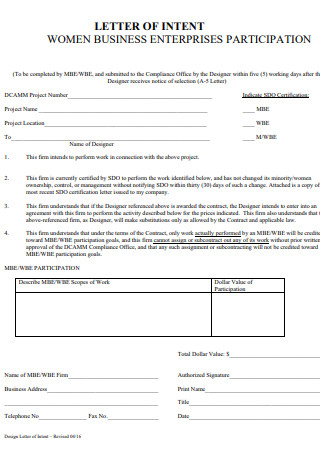
Business Enterprises Participation Letter Of Intent
download now -
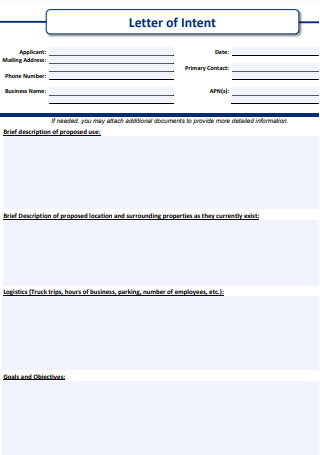
Business Letter Of Intent
download now -
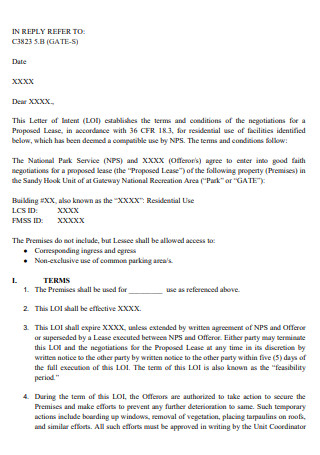
Sample Business Letter Of Intent
download now -
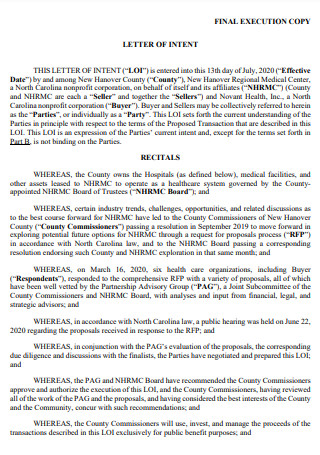
Real Estate Business Letter Of Intent
download now -
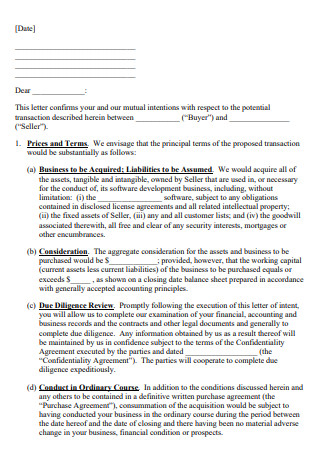
Letter of Intent to Purchase a Business
download now -
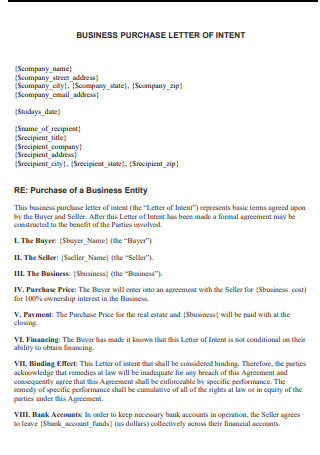
Business Entity Letter Of Intent
download now -
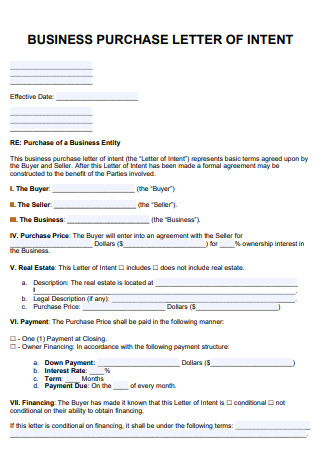
Business Purchase Letter Of Intent Example
download now -
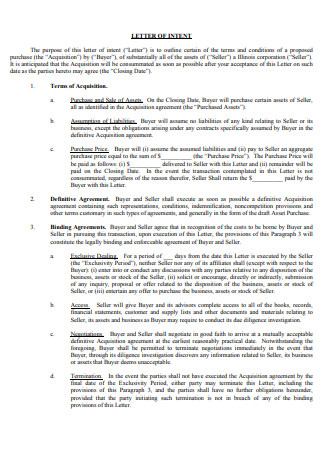
Business Aquisition Letter Of Intent
download now -
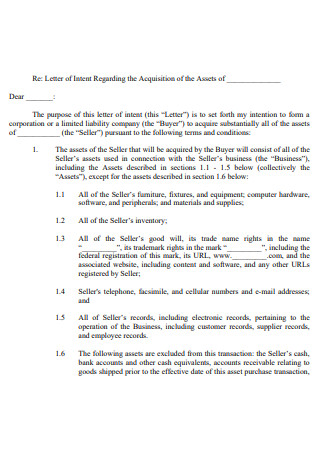
Business Vendor Letter Of Intent
download now -
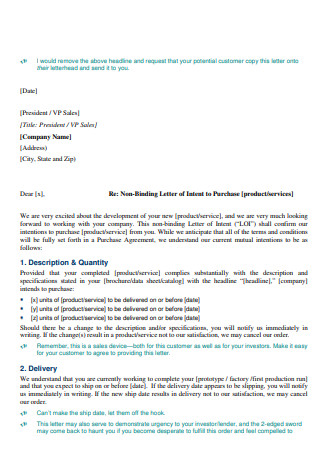
Non Binding Business Letter Of Intent
download now -
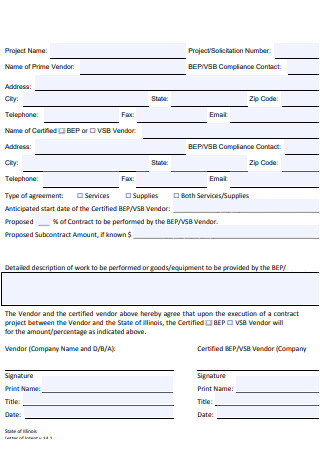
Small Business Letter Of Intent
download now -
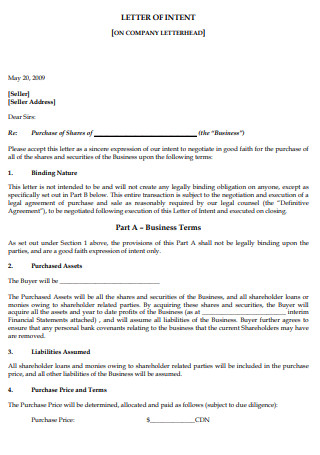
Business Proposal Letter Of Intent
download now -
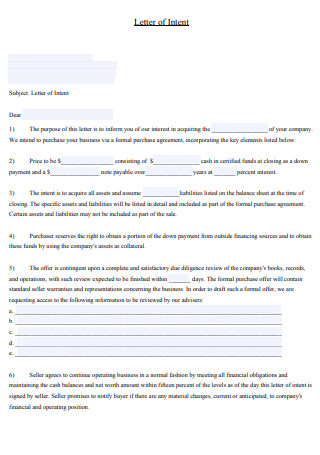
Business Agreement Letter Of Intent
download now -
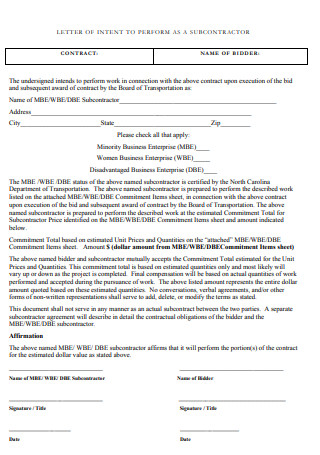
Minority Business Letter Of Intent
download now -
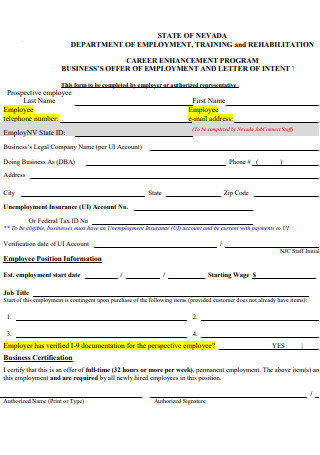
Business Offer to Hire Letter Of Intent
download now -
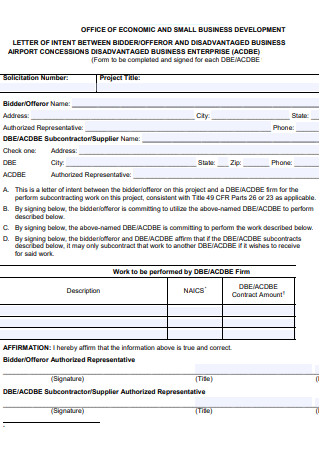
Business Development Letter Of Intent
download now -
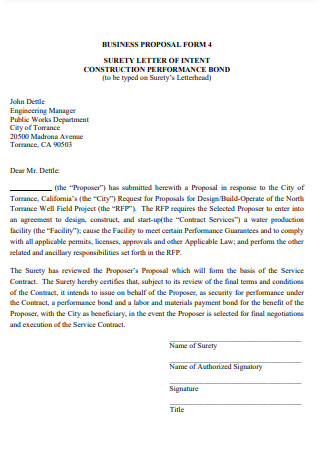
Business Proposal Form Letter Of Intent
download now
FREE Business Letter Of Intent s to Download
16+ SAMPLE Business Letter Of Intent
What Is a Business Letter of Intent?
Importance of a Business Letter of Intent
Important Elements of a Business Letter of Intent
General Tips For Writing a Business Letter of Intent
Do’s and Don’ts of Business Negotiations
How To Write a Business Letter of Intent
FAQs
Are there any alternatives to a business letter of intent?
What does negotiation mean?
What is a Business Letter?
What Is a Business Letter of Intent?
Before we get into the details of a business letter of intent, perhaps a proper understanding of what a letter of intent is would be important. By definition, a letter of intent (LOI) is a non-legally binding document that is used whenever a company is about to finalize a deal or contract with another company. It establishes the aspects of the deal that the parties involved agree on, shows the parties have an intention to commit to a final deal, and clears the way for legally-binding document called a definitive agreement later on in the negotiation phase.
A business letter of intent is a document that serves as a starting platform for the parties that are involved in negotiating a business transaction such as a joint venture, a merger, or a sales purchase. The business letter of intent also states what specific information is required for the parties to make an informed decision about the transaction. The letter can also be used to grant the buyer the “right of first refusal,” which means that the seller cannot reach a definitive agreement to sell itself or its subsidiary (or whatever the agreement is about) to another entity before reaching an agreement with this buyer.
Importance of a Business Letter of Intent
What is the importance of having a business letter of intent? To answer that question, having a business letter of intent in the first place is for the parties involved in the deal to have protection despite the fact that the LOI itself is not legally binding. For example, this document can include a clause that protects a buyer which states that the ongoing transaction is fully dependent on the buyer’s ability to secure financing. This document also sets the stage for a final agreement and enables the buyer to begin formal due diligence.
Important Elements of a Business Letter of Intent
Here are the common important elements that comprise a business letter of intent; keep in mind that the exact specific content will vary depending on the type of deal that is being finalized by the parties involved.
General Tips For Writing a Business Letter of Intent
Here are a few pointers to keep in mind whenever writing a business letter of intent:
- Provide clear and accurate information. Whenever you write a letter of intent, it is important to double-check that all the information that is being written in the document is correct, including small details such as the spelling of the name of the recipient and their address. Even though a letter of intent is considered as a non-legally binding document, a party may take it to court. Providing accurate information in the letter of intent is also important because the document may be needed for other purposes such as securing a loan.
- Keep the letter of intent brief and simple. In writing a letter of intent, it is usually the best practice to indicate only the necessary steps and agreement details that the parties involved need to move forward with their negotiations. At this point in the negotiating process, you do not want to get involved in very complex details but rather allow for possible changes in future negotiations. Also, it is best practice to stay clear from using any complicated legalese language and keep things as simple as they possibly can.
- Use an attorney whenever possible. Even though it is not required, it is always advisable to consult with an attorney when negotiating the terms and conditions of business transactions. You can, however, draft your own business letter of intent for deals that are not too complicated or those that only involve minor investments.
- Act in a professional manner. Since the letter of intent is part of a business transaction, you should write the letter in a formal tone and avoid using any casual or informal language. Also, once you have finished writing the letter of intent, take some time to proofread and verify it for any possible errors.
Do’s and Don’ts of Business Negotiations
Here are some of the pointers you should take and approaches you should avoid whenever you negotiate for a business deal:
- DO prepare. This serves as one of the most effective strategies when negotiating for a business deal. Research about the company that you’ll be doing your negotiations with. Whenever possible, look for colleagues who may have performed negotiations with that company before so that you have an idea of how to deal with them.
- DO set a bottom line. Before committing to business negotiations, you need to determine your desired outcome first and make a promise to yourself and others, if applicable, not to deviate from it. Setting a proper bottom line will help you know when to walk away from negotiations and when to press on.
- DO know when and how to listen to others. The most important negotiation tactic is one that many of us were taught as children but are still working on mastering: listening. It is very easy to get caught up in your talking points when you’re eager to close a business deal. The most effective negotiators adhere to the 80/20 rule, which states that they should listen 80 percent of the time and only speak 20 percent of the time.
- DON’T let emotions dominate. You should never let your emotions guide your approach to business negotiations. It not only impairs our judgment, but it can also lead to highly charged blunders that can impede or halt negotiations entirely. Stay calm and friendly even if the people you’re negotiating with are not.
- DON’T underestimate anyone. When it comes to business negotiations, you should never underestimate the power of a determined competitor—including yourself—regardless of the number of people or the appearance of strength and size (or lack thereof) on either side of the negotiations. Financial worth and business size are important, but so are preparation, a solid plan, and a positive attitude.
- DON’T have an “all-or-nothing” attitude. It is critical to remember that any form of negotiating, whether in business or otherwise, necessitates compromise. Negotiation tactics that focus on developing a mutually beneficial deal for both parties are the most effective. One-sided thinking is unlikely to result in a successful deal, so make sure you understand which items are critical to your position and which points can be conceded.
How To Write a Business Letter of Intent
Here are the steps that you can follow when you write a business letter of intent; since this is mainly a non-legal document, you should take extra care in adding some complicated or specific terms that may make it a legal paper without your knowledge:
1. Write The Introduction of The Letter
In writing the introduction of the letter of intent, you should state what the purpose of the document is and you should also mention the names of the parties involved and their respective roles in the business negotiations. In addition to that, a description of what the transaction is about should also be included.
2. Describe The Transaction and The Timeframes of The Negotiation
This section of the business letter of intent provides a more detailed description of the transaction, including the type of business transaction you will be entering and a possible purchase price which can still be subject to change. You can also include preliminary timeframes that can be used for upcoming negotiation processes, but these items should also be used as guidelines and are subject to change.
3. List Any Contingencies
All parties involved in the business negotiations can list contingencies that must be in place for the negotiations to continue in this section. For example, a common contingency is that the deal’s completion is totally dependent on the buyer’s ability to secure financing. Alternatively, another contingency could be that the transaction will take place only if the buyer is satisfied with the due diligence procedures.
4. Go Through Due Diligence
Due diligence is referred to as the process by which both parties disclose relevant information about future proceedings in order to avoid any unnecessary surprises during ongoing negotiations. This may involve the checking of records, notifying a party that certain documents will be requested, and verifying all the tax and legal documents.
5. Include The Covenants and Other Binding Agreements
Although the business letter of intent is not considered as a legally-binding document, both parties can include legally binding sub-agreements known as restrictive covenants. A nondisclosure agreement, for example, protects both parties by prohibiting them from using information shared during the negotiations for any purpose other than the deal that is being negotiated. A non-compete agreement, which states that the buyer may not use the seller’s information to start a competing business, may also be requested by the seller. In most cases, you should also include a section in the letter stating that each party will cover its own costs during negotiations, such as legal, travel, and accounting fees.
6. Write The Closing Part.
In the closing part of the letter of intent, add a section that clearly states that the business letter of intent will be non-binding to all the parties involved apart from the sub-sections that you may have included. In this section, you should also write a date on which parties should be closing the deal. If the negotiations are still not concluded by the time the date stated in the letter of intent arrives, the intended transaction and the business letter of intent will automatically terminate.
FAQs
Are there any alternatives to a business letter of intent?
Yes, there are alternatives to writing a business letter of intent. They are a term sheet and an indication of interest document (IOI). A term sheet, even though used synonymously with a business letter of intent, is totally different in that it only lists out the terms of the deal or the negotiation instead of being a full-fledged letter in which the business letter of intent is about. An Indication of Interest document is an informal, non-binding document that states an interest in carrying out a business transaction. It is most often sent by a proposed buyer to a company it is interested in acquiring. This document includes a price range and provides some information regarding where the buyer gets their funds.
What does negotiation mean?
Negotiation is a term that refers to a type of discussion that is used to settle any kind of dispute and reach agreements between two or more parties. It is a give-and-take process resulting in a compromise where each side makes a concession for the benefit of everyone involved in the negotiations.
What is a Business Letter?
A business letter is a document that is often sent from one company to another or from a company to its respective clients, employees, and stakeholders. In today’s modern digital age, business letters are still used for many important and serious purposes, such as reference letters, job offers, letters of intent, employment verification, and more. The business letter may vary in length depending on the writer’s objective, purpose, and message of the letter. Since this is a legal document, it is important that all the information written here is honest and legitimate.
An effective business letter of intent highlights the intention of the parties involved in a negotiation that they want to do business together. Other reasons why this document is used can be outlining the fundamental terms of negotiation and coming to an agreement before proceeding to in-depth negotiations and the planning phase. In this article, examples of an effectively-written business letter of intent are available to download for your personal use should you need to draft one.
